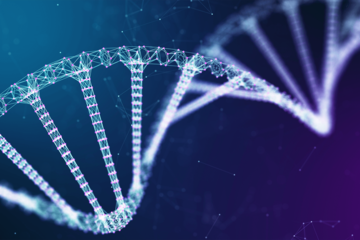We found 68 results that contain "education system"
Posted on: #iteachmsu

ASSESSING LEARNING
Advanced employee management
Usually, large companies and organizations have a vast army of human resources working under them. In such scenarios where there’s a significant number of human employees to manage, it becomes challenging to supervise and manage the activities of the human resources efficiently. Such companies/organizations need an advanced employee management system that can handle everything related to the company’s human resources.
This project aims to build an employee management system that consolidates all the relevant information on a company’s human resources. It has two major components – Admin and Employee.
This project aims to build an employee management system that consolidates all the relevant information on a company’s human resources. It has two major components – Admin and Employee.
Authored by:
Divya Sawant
Posted on: #iteachmsu

Advanced employee management
Usually, large companies and organizations have a vast army of huma...
Authored by:
ASSESSING LEARNING
Wednesday, Oct 28, 2020
Posted on: #iteachmsu

ASSESSING LEARNING
Are there any advances in this direction that you think hold promise?
The basic idea of intelligence:An explosion is that once machines reach a certain level of intelligence, they’ll be able to work on AI just like we do and improve their own capabilities — redesign their own hardware and so on — and their intelligence will zoom off the charts. There’s an area emerging called “cyber-physical systems” about systems that couple computers to the real world. With a cyber-physical system, you’ve got a bunch of bits representing an air traffic control program, and then you’ve got some real airplanes, and what you care about is that no airplanes collide. You’re trying to prove a theorem about the combination of the bits and the physical world. What you would do is write a very conservative mathematical description of the physical world — airplanes can accelerate within such-and-such envelope — and your theorems would still be true in the real world as long as the real world is somewhere inside the envelope of behaviors.
Yet you’ve pointed out that it might not be mathematically possible to formally verify AI systems.
There’s a general problem of “undecidability” in a lot of questions you can ask about computer programs. Alan Turing showed that no computer program can decide whether any other possible program will eventually terminate and output an answer or get stuck in an infinite loop. So if you start out with one program, but it could rewrite itself to be any other program, then you have a problem, because you can’t prove that all possible other programs would satisfy some property.
Yet you’ve pointed out that it might not be mathematically possible to formally verify AI systems.
There’s a general problem of “undecidability” in a lot of questions you can ask about computer programs. Alan Turing showed that no computer program can decide whether any other possible program will eventually terminate and output an answer or get stuck in an infinite loop. So if you start out with one program, but it could rewrite itself to be any other program, then you have a problem, because you can’t prove that all possible other programs would satisfy some property.
Authored by:
Rupali

Posted on: #iteachmsu


Are there any advances in this direction that you think hold promise?
The basic idea of intelligence:An explosion is that once machines r...
Authored by:
ASSESSING LEARNING
Tuesday, Jan 12, 2021
Posted on: #iteachmsu

ASSESSING LEARNING
Human computer interaction (HCI)
Introduction
Humans interact with computers in any way the interface between humans and computers is crucial to facilitate this interaction. Desktop applications, internet browsers, handheld computers, ERP, and computer kiosks make use of the prevalent graphical user interfaces (GUI) of today.
Voice user interfaces (VUI) are used for speech recognition and synthesizing systems, and the emerging multi-modal and Graphical user interfaces (GUI) allow humans to engage with embodied character agents in a way that cannot be achieved with other interface paradigms. The growth in the human-computer interaction field has been in the quality of interaction, and indifferent branching in its history. Instead of designing regular interfaces, the different research branches have had a different focus on the concepts of multimodality rather than unimodality, intelligent adaptive interfaces rather than command/action based ones, and finally active rather than passive interfaces.
An important facet of HCI is user satisfaction (or simply End-User Computing Satisfaction). "Because human-computer interaction studies a human and a machine in communication, it draws from supporting knowledge on both the machine and the human side. On the machine side, techniques in computer graphics, operating systems, programming languages, and development environments are relevant.
Humans interact with computers in any way the interface between humans and computers is crucial to facilitate this interaction. Desktop applications, internet browsers, handheld computers, ERP, and computer kiosks make use of the prevalent graphical user interfaces (GUI) of today.
Voice user interfaces (VUI) are used for speech recognition and synthesizing systems, and the emerging multi-modal and Graphical user interfaces (GUI) allow humans to engage with embodied character agents in a way that cannot be achieved with other interface paradigms. The growth in the human-computer interaction field has been in the quality of interaction, and indifferent branching in its history. Instead of designing regular interfaces, the different research branches have had a different focus on the concepts of multimodality rather than unimodality, intelligent adaptive interfaces rather than command/action based ones, and finally active rather than passive interfaces.
An important facet of HCI is user satisfaction (or simply End-User Computing Satisfaction). "Because human-computer interaction studies a human and a machine in communication, it draws from supporting knowledge on both the machine and the human side. On the machine side, techniques in computer graphics, operating systems, programming languages, and development environments are relevant.
Authored by:
Rupali

Posted on: #iteachmsu


Human computer interaction (HCI)
Introduction
Humans interact with computers in any way the interfac...
Humans interact with computers in any way the interfac...
Authored by:
ASSESSING LEARNING
Thursday, Jan 21, 2021
Posted on: #iteachmsu

computer science
Computer science focuses on the development and testing of software and software systems. It involves working with mathematical models, data analysis and security, algorithms, and computational theory. Computer scientists define the computational principles that are the basis of all software.
Posted by:
Super Admin

Posted on: #iteachmsu


computer science
Computer science focuses on the development and testing of sof...
Posted by:
Thursday, Oct 26, 2023
Posted on: #iteachmsu

Global warming
Global warming is the long-term heating of Earth's climate system observed since the pre-industrial period (between 1850 and 1900) due to human activities, primarily fossil fuel burning, which increases heat-trapping greenhouse gas levels in Earth's atmosphere.
Authored by:
admin

Posted on: #iteachmsu


Global warming
Global warming is the long-term heating of Earth's climat...
Authored by:
Friday, Oct 16, 2020
Posted on: #iteachmsu

DISCIPLINARY CONTENT
Maintaining Student Academic Records
In the current scenario, mark sheet of the individual students are maintained by respective universities. No third party authority or any person is appointed to validate the marks or degree obtained by the student as per records of the university. If the universities decide to verify each student’s mark sheet or certificate then entire process will have to be carried out manually.
Block chain technology can help to eliminate such issues by offering features such as information collaboration and validation which can help to validate the student degree or marks obtained. We can see more new concepts and ideas related to collaboration oriented processes in block chain especially developed for education sector.
Block chain technology can help to eliminate such issues by offering features such as information collaboration and validation which can help to validate the student degree or marks obtained. We can see more new concepts and ideas related to collaboration oriented processes in block chain especially developed for education sector.
Authored by:
Divya Sawant

Posted on: #iteachmsu


Maintaining Student Academic Records
In the current scenario, mark sheet of the individual students are ...
Authored by:
DISCIPLINARY CONTENT
Wednesday, Dec 23, 2020
Posted on: #iteachmsu

An Overview of the Syllabus and its Role at MSU
What a syllabus is
A syllabus is a synecdoche for a course of study—a part of the curricular experience that represents the whole. They are often the very first course texts our students encounter and, accordingly, they frame and preface learning in powerful ways. On one hand, they communicate practical and structural details—where and when a course meets, what to read, and how to contact an instructor. But they also express intellectual and discipline-specific expectations.
As a special genre of educational texts, syllabi have taken various forms and played various roles over many centuries. In the 17th century ‘syllabus’ was synonymous with ‘table’ or ‘index.’ They served as a structural preview for manuscripts or a list of speakers and topics for a lecture series—they were a means of organizing texts, ideas, and experience. Although that core function remains, post-secondary syllabi have expanded significantly in volume and purview over the past forty years.
A syllabus is a synecdoche for a course of study—a part of the curricular experience that represents the whole. They are often the very first course texts our students encounter and, accordingly, they frame and preface learning in powerful ways. On one hand, they communicate practical and structural details—where and when a course meets, what to read, and how to contact an instructor. But they also express intellectual and discipline-specific expectations.
As a special genre of educational texts, syllabi have taken various forms and played various roles over many centuries. In the 17th century ‘syllabus’ was synonymous with ‘table’ or ‘index.’ They served as a structural preview for manuscripts or a list of speakers and topics for a lecture series—they were a means of organizing texts, ideas, and experience. Although that core function remains, post-secondary syllabi have expanded significantly in volume and purview over the past forty years.
Posted by:
Super Admin

Posted on: #iteachmsu

NAVIGATING CONTEXT
Developing self-awareness and emotional intelligence: Understanding one's own emotions and those of
\Life skills education focuses on equipping individuals with the abilities needed to navigate everyday challenges and lead fulfilling lives. It encompasses a range of psychosocial and interpersonal skills that enable informed decision-making, effective communication, and healthy relationships. This type of education goes beyond traditional academic subjects, emphasizing practical skills applicable to personal, social, and professional contexts.
Key aspects of life skills education include:
Developing self-awareness and emotional intelligence:
Understanding one's own emotions and those of others, managing stress and anxiety, and building healthy relationships are crucial components.
Enhancing critical thinking and problem-solving:
Learning to analyze information, identify problems, and develop effective solutions is essential for navigating complex situations.
Improving communication and interpersonal skills:
Effective communication, both verbal and nonverbal, is vital for building strong relationships and resolving conflicts.
Promoting decision-making and goal-setting:
Learning to make informed decisions, set realistic goals, and develop plans to achieve them are important life skills.
Fostering adaptability and resilience:
Developing the ability to adapt to change, cope with setbacks, and bounce back from challenges is essential for navigating life's ups and downs.
Encouraging responsible citizenship:
Understanding personal responsibility, contributing to the community, and promoting ethical behavior are important aspects of life skills education.
Key aspects of life skills education include:
Developing self-awareness and emotional intelligence:
Understanding one's own emotions and those of others, managing stress and anxiety, and building healthy relationships are crucial components.
Enhancing critical thinking and problem-solving:
Learning to analyze information, identify problems, and develop effective solutions is essential for navigating complex situations.
Improving communication and interpersonal skills:
Effective communication, both verbal and nonverbal, is vital for building strong relationships and resolving conflicts.
Promoting decision-making and goal-setting:
Learning to make informed decisions, set realistic goals, and develop plans to achieve them are important life skills.
Fostering adaptability and resilience:
Developing the ability to adapt to change, cope with setbacks, and bounce back from challenges is essential for navigating life's ups and downs.
Encouraging responsible citizenship:
Understanding personal responsibility, contributing to the community, and promoting ethical behavior are important aspects of life skills education.
Posted by:
Chathuri Super admin..
Posted on: #iteachmsu

Developing self-awareness and emotional intelligence: Understanding one's own emotions and those of
\Life skills education focuses on equipping individuals with the ab...
Posted by:
NAVIGATING CONTEXT
Monday, Aug 4, 2025

